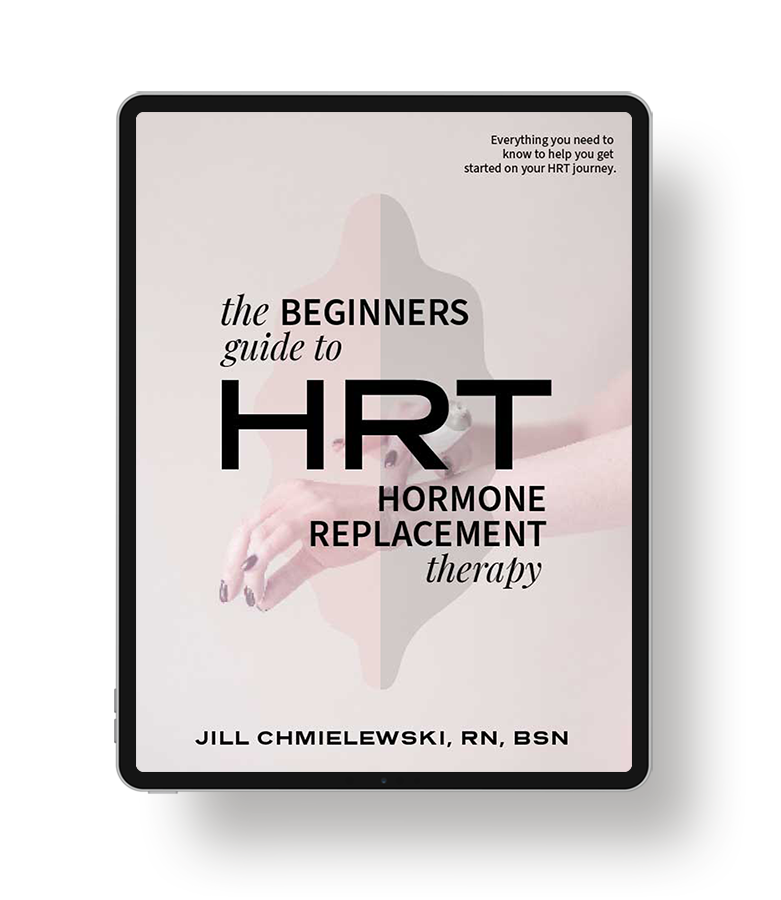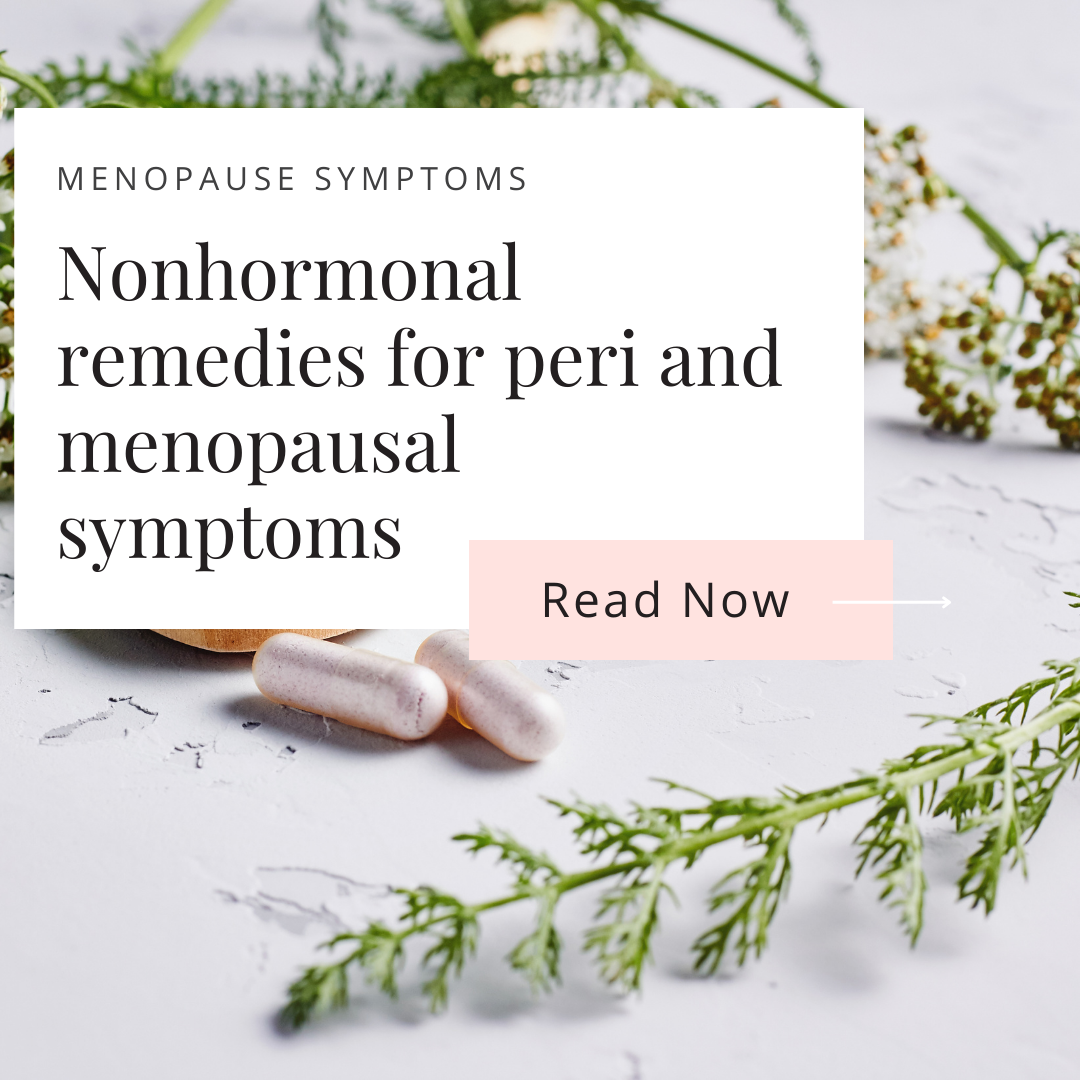Feeling stressed? You are not alone. According to a recent report compiled by MedicalHealthPlans.com “stress” was the number one most-Googled health symptom this past year in the United States.
The toll that stress takes on our precious bodies is like no other. If most health-conscious women spent even half the amount of time they spend focusing on nutrition and exercise on managing their stress, they’d be a lot better off.

“According to the Annual Stress Survey by the American Psychological Association, 75% of women experience moderate to severe stress, 49% report sleep problems, and more than 40% report physical symptoms as a direct result of stress. Recent studies show that most are also experiencing chronic overwhelm and exhaustion. ” (~Dr. Aviva Romm, The Adrenal Thyroid Revolution).
I’d say we have a problem.
I see this in my practice all. the. time. Stressed out women who are hanging by a thread, feeling crappy in their bodies and longing to feel like themselves again. And they’ll do almost anything to feel better as long as it doesn’t involve asking them to manage or reduce their stress.
I get it. Stress management/reduction is hard, but it is absolutely crucial to optimal health and longevity. It forces us to slow down, to say no, to step back, and to disengage from the urgency of modern life. It asks us to prioritize self-care in a culture that does not value it.
I find that educating my clients on the effects of stress on their body is key for them to find the motivation to make changes, and I’d like to share some of that same education with you today.
In order to understand the devastating effects of stress on our bodies, we must first take a look at our nervous system.
I am only going to focus on one part of the nervous system called the autonomic nervous system, abbreviated ANS. The ANS is sort of an autopilot system…..it’s the part of your nervous system that runs all of the behind the scenes happenings in your body, and it is not under your conscious control. For example, it regulates your heart rate without you consciously saying, “Okay heart let’s take a beat now”. It’s automatic and works 24/7 without you really giving any thought to it.
Within your ANS is your sympathetic nervous system (SNS) and your parasympathetic nervous system (PNS). You may remember learning about these systems during high school science class. These two systems have completely opposite functions.
In times of stress, our SNS raises our heart rate, increases our blood pressure, increases our respiratory rate, releases adrenaline (also known as epinephrine) and cortisol (your long-term stress hormone), and diverts blood away from digestion and reproduction toward our muscles so that we can fight or flight.
In contrast, the PNS lowers our heart rate, blood pressure, and respiration rate and brings the blood back to our digestive tract so that we can digest our food and back to our reproductive system so that we have increased libido to conceive a baby.
Think about the SNS and the PNS in this way:
SNS = Fight or flight
PNS = Rest and repair (or rest and digest)
Before I go any further, I want you to guess which one of these systems is the ideal state for your body?
If you guessed PNS, you are right! A healthy body is supposed to be in a relaxed state most of the time and the stress response is meant to be triggered only very rarely when you are in a dangerous situation.
Our bodies are hard-wired for survival, and the intention of the fight or flight (SNS) response is to ensure that we get out of danger, and FAST!
Have you ever walked across the street only to see a car come barreling toward you?
Within a nanosecond of time, you probably found yourself jumping out of the way toward safety. That is your stress response (fight or flight) hard at work. Within that nanosecond, there was an adrenaline surge causing your heart rate and blood pressure to rise, your pupils dilated and all of the blood from your digestive system and reproductive tract was diverted to your essential organs and your muscles so that you could get to safety. When your body sensed that it was safe again, the fight or flight response should have turned off, and you should have returned to your rest and restore state. You with me so far?
It might surprise you then to know that our body cannot tell the difference between the threat of a car coming toward us and a work deadline.
Seriously! From our body’s perspective, all of our feelings affect our nervous system, and fear, worry, anger, and frustration set off the fight or flight response in the exact same way that a car barreling toward us would set it off. Any real or perceived stress will signal the SNS to turn on, and this chronic signaling not only increases adrenaline but increases cortisol, our other stress hormone. Egads!
You have probably heard the word “adrenal” because there has been a lot of recent buzz about adrenal stress and adrenal fatigue.
The adrenals are two walnut-shaped glands that sit atop our kidneys. These little guys secrete our stress hormones (they secrete some of our sex hormones too), and they are what determine our tolerance to stress. They are also the system of our body most affected by stress. So, when you hear someone say that they have adrenal fatigue, you know that there has likely been a long-term imbalance in their stress hormones.
One other super important thing that we must not overlook when talking about the stress response is the effect of caffeine on our nervous system. I know some of you are not going to like what you hear, but this little nugget of information may just provide you with that “aha” moment that so many of my clients have found.
Caffeine acts on the adrenal glands to stimulate the production of adrenaline.
That makes perfect sense when you think about the jolt that you feel soon after taking some sips of your morning cup-o-joe right? But remember, adrenaline signals to your body that it needs to get ready for a fight or to flight, so all of your bodily systems kick into high gear (and not in a good way).
With that surge of adrenaline comes……
- A rise in blood sugar (to give you more energy)
- A rise in blood pressure and heart rate (to provide more oxygen to your muscles for the fight/flight)
- Pupils dilate (to see more in less light)
- Immune function stops (because fighting an infection isn’t a priority when facing a predator attacks)
- Food is diverted away from your digestive system (your muscles need the blood more than the digestive system needs it)
- Reproduction shuts down (your body doesn’t think it is safe to bring a baby into the world)
All that from one cup of coffee? Yep, and imagine what happens when you drink coffee or caffeinated soda at several points throughout the day or all day long, as many women do.
Remember, our body is hard-wired to deal with short bouts of occasional high stress. But most of us are not feeling occasional stress or drinking an occasional cup of coffee. We drink coffee daily and perceive stress almost constantly, and with this consistently perceived stress and caffeine-induced adrenaline production, our body starts to shift from a place of short-term stress to long-term stress, and that’s where cortisol comes in.
Cortisol is your long-term stress hormone.
Now, cortisol in and of itself is not a bad hormone, and in fact, we need cortisol in optimal amounts in order to maintain balance in our bodies. It is cortisol that actually helps with inflammation in the body, and many of you know that if you have had experience with a cortisol injection.
Cortisol is designed to be highest in the morning (to help awaken you from your sleep and get you out of bed) and taper slowly throughout the day (so that you can sleep at night). But as your body begins to see that you are in a constant state of stress, cortisol begins to steadily rise, and not at the optimal times of the day. This steady rise in cortisol is a signal to your body to go into a constant state of survival mode.
So what does that mean?
Cortisol tells your cells that there is no more food left in the world, so you better hang onto extra body fat.
It slows down your metabolism (because who knows when you will get a meal again).
It tells your sex hormones to take a back seat for now ( you don’t need to get pregnant when you are just trying to survive).
It starts to break your muscles down for extra energy (because your body thinks that food is scarce).
There is a cascade effect that ensues, and for many women, this cortisol imbalance is what is responsible for an expanding waistline, ongoing hormone imbalances (think wonky periods, bad PMS, no periods, miserable perimenopausal symptoms), low energy, inability to fall asleep at night, and difficulty rising in the morning.
It’s not just the morning cup-o-joe, the busy schedule or a work deadline that signal to the adrenal glands to pump out more stress hormones. Physical issues like blood sugar imbalances, food intolerances (especially gluten), chronic infections, environmental toxins, autoimmune issues, inflammation, and over-exercising sound the alarm bells and tell the adrenal glands to pump out more stress hormones too.
So, now that you have a better understanding of the effects of stress hormones on our body, let’s talk about what we can do to dial down the stress hormones.
1. Address known physical stressors.
Got a blood sugar imbalance, a food sensitivity, too much exposure to toxins? How about ongoing inflammation or nutrient deficiencies from eating too many processed foods? Are you pounding your body during exercise? Shifting away from crap food, excess sugar (and refined carbs), environmental toxins and overexercising will go a long way to help decrease the stress response to physical triggers. (Working with a functional medicine practitioner can greatly help to identify your unique triggers.)
2. Address emotional triggers.
Are you happy at your job and in your relationships? Does the thought of the start of the new work week stress you out, or are you happy with your current career choice? Go deep here and really think about what’s working for you and what isn’t.
Have you looked at your schedule recently? From an outsider looking in, does your schedule look enjoyable or stressful? Get real with yourself about your bandwidth and think about ways that you may be able to simplify your life and begin to take action towards reducing your stress load. And don’t apologize! You don’t owe anyone an explanation for your decisions.
3. Reduce and/or limit your caffeine intake.
Caffeine induces the stress response, PERIOD. And consistent caffeine throughout the day is without a doubt causing more harm than good. I am not saying that you cannot ever have a cup of coffee again. I am simply saying that I want you to begin to tune into your body’s response to caffeine and make adjustments that will benefit your body.
If you feel the caffeine jitters, have an insatiable appetite, or find yourself in the bathroom right after your morning cup-o-joe, your body is telling you to back off the caffeine. Start by cutting back on the number of cups throughout the day, switch to a half-caff coffee, or try a decaf coffee and see how you feel. You may have a headache for the first few days, so go slow. You know your body best, and listening to your body for feedback is one of the best ways to measure your body’s reaction to caffeine.
4. Deep breathing/meditation/ restorative exercises
Nothing communicates to our body that we are “safe” from a threat better than deep diaphragmatic breathing, where our tummy moves in and out as we breathe, as opposed to our upper chest. (Short, shallow breaths have the opposite effect.) Most experts agree that about 20 good quality tummy in and out breaths will quickly send the signal to our stress hormones to back the eff down.
So, the next time you feel like your mind is full of stressors, take 5 minutes and practice deep, diaphragmatic breathing. Or schedule a couple of 5 minutes sessions in your calendar each day and don’t cancel on yourself! Incorporating breath-focused practices like meditation, yoga, Pilates, and tai-chi a couple of times per week can be highly beneficial as well.
5. Say “No” to the people and things that no longer serve you.
Think for a moment about the people and things that stress you out or put you over the edge. If you find yourself getting stressed out at the thought of seeing a certain someone, or you feel your heart racing when you see that one particular caller ID coming in through your cell phone, it may be time to simply say “No, I am not going to subject myself to this person. He/she is bad for my health.”
I realize that it’s not always easy to do, especially when it comes to a family member or your boss, but it’s important to avoid or limit the amount of exposure to someone that feels toxic in your life.
The same rule holds true for saying “no” to certain activities or obligations. If you truly loathe being on a certain committee or regret that you said “yes” to a volunteer job that makes you miserable, then it’s time to take a stance. You need to do what’s best for you, and sometimes adding one more obligation to your already busy schedule can be enough to throw you into a full-blown stress response. It’s not worth it.
6. Get adequate sleep
Sleep is when our bodies do their critical repair work. I think of sleep as a time when our bodies clean up the metabolic trash of the day. Most of us cut into sleep to get “just one more thing done” not realizing that when we cut into sleep, we disrupt the natural circadian rhythm of our body. Adequate sleep plays an important role in stress hormone production (among other things) and bodily repair and rejuvenation, so making sleep a priority when you are stressed, is critical.
7. Try adaptogenic herbs
Adaptogenic herbs work with your body to help normalize stress hormones. If cortisol is low, they can help to boost cortisol levels; if cortisol is too high, they can help to lower cortisol levels. Their effects are generally not localized to a specific body organ but have a “normalizing” effect (restorative rather than curative) on the imbalances caused by physical or emotional stress.
Adaptogenic herbs generally work best when used in combination. It’s important to choose the right adaptogenic herbs for your body.
To reduce high cortisol, calming herbs like ashwagandha, holy basil, passionflower, chamomile, magnolia, l-theanine, bacopa, kava, valerian, and hops work best. Rhodiola may be helpful, but some people find it to be too stimulating.
To increase low cortisol, boosting herbs like ginseng, eleuthero, coleus, and licorice root (may lower testosterone and can increase blood pressure so use with caution) may be helpful.
8. Eat nutrient-dense food.
Certain raw materials are needed for your body to make steroid hormones like adrenaline and cortisol. Optimal levels of B vitamins and magnesium are my go-to supplements in clients with long-term stress. But supplements will only take you so far ~ most vitamins and minerals work best in symphony with other nutrients which is why a diet rich in nutrient dense food is so important! It’s virtually impossible to bottle all of the nutrients found in one head of broccoli or a whole apple.





